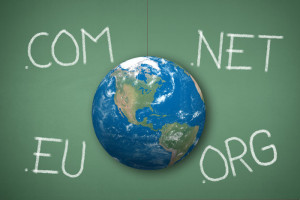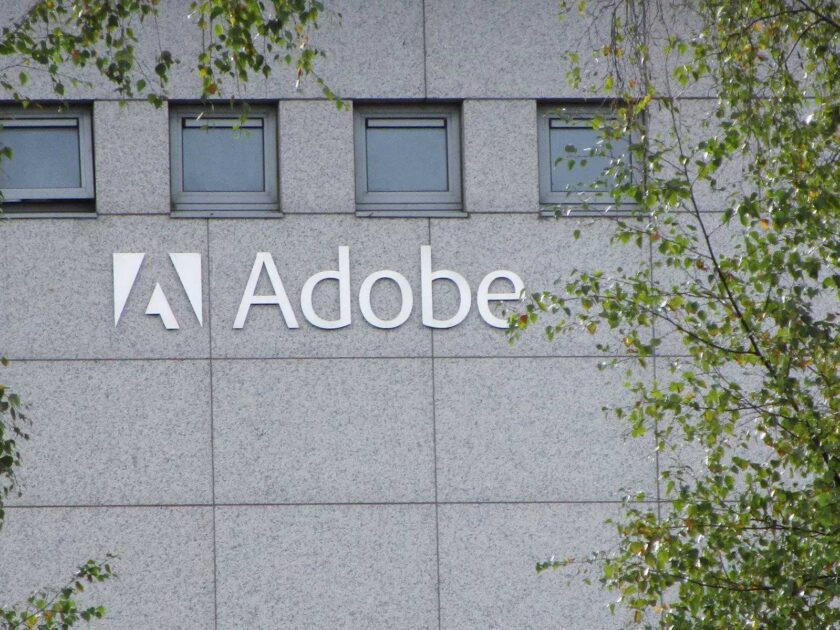When it comes to investing, I’m what financial advisers somewhat derisively call “risk averse.” But in all modesty, I just have this knack for woulda coulda shoulda. My latest involves the subject of buying domain names. Specifically, I shoulda registered the domain name VacationRentals.com, not too long ago, because I coulda sold it to HomeAway in 2007 for $35 million.
Had I done that, today I might be negotiating the purchase of a Paris apartment and planning my next private jet vacation, instead of figuring out how to fit my worldly possessions into a carry-on bag, visit Switzerland without breaking the bank and rent an apartment in San Francisco for the upcoming holiday season on Airbnb – not that there’s anything wrong with any of these activities.
Still, I can dream. So I spent a chunk time of this week interviewing people who actually did the kind of thing that I woulda coulda shoulda done, but in fact did not do.
People like Rick Schwartz. A college dropout, he was a traveling salesman who had been working on commission selling furniture for 15 years when he got the idea in 1995 to start registering what might be politely referred to as adult domain names, such as slut.com, porno.com and ass.com, which get a lot of type-in traffic. All these addresses go to what in Internet lingo is called a parking page – a web landing with links to advertising targeted at the kind of people who would search for these terms on the web. Google gets paid each time people click on these other sites, and Schwartz gets a cut of their revenues. “I was able to go into the porn industry without ever having a dirty picture,” says Schwartz, 60. Investing in domain names “gave me a way to get off the road.”
Folks like Schwartz may own tens or hundreds or thousands of them (he owns 6,000). The easiest and most low-risk way to get into this market is tocreate a domain name, pay the nominal fee to register it, and hope that someday someone will want to buy it. All Internet domain names are run through the Internet Corporation for Assigned Names and Numbers (known as ICANN). After that, they are managed by companies called registrars – there are hundreds of them, including such popular ones as Go Daddy, register.com and Network Solutions. They will give you the exclusive right to use the domain name for a certain period of time (typically one or two years), after which you can renew it.
But the real money – and what’s paid for Schwartz’s five mortgage-free homes and seven cars – is the sale of a domain name for a figure that includes many zeros. Schwartz has done 20 such transactions during the past 18 years. Some have involved domain names for which he was the initial registrant; others were domain names that he bought on the aftermarket.
Among his triumphs: He bought candy.com in 2005 for $100,000 and sold it in 2009 for $3 million, putting it No. 19 on Wikipedia’s list of the top 20 highest prices paid for domain names. Most recently he sold eBet.com, a domain name which he paid $100 to register in 1996. Its sale, on Oct. 16 for $1.35 million, makes it No. 4 on DN Journal’s list of the top 100 domain sales for 2013. No. 1 on the list, which wasn’t one of his, was IG.com, which fetched $4.7 million.
Wondering if I could replicate his success, on Nov. 21 I attended the inaugural domain name auction of Heritage Auction, the venerable Dallas-based auctioneer that I have featured in past stories about collectibles. (See my posts, “How To Buy Your First Hermès Birkin” and “Stolen Dinosaur, Bought For $1 Million At New York Auction, Will Be Returned To Mongolia.”) Heritage recently hired Aron Meystedt, a 33-year-old entrepreneur who boasts a successful domain name portfolio of his own, to start up a new Domain Names & Intellectual Property category.
Of course, there are plenty of opportunities to buy domain names on the secondary market through online auctions – Sedo, afternic and GoDaddy are just a few of those companies that offer this opportunity, as does Heritage. But I thought going in person, to the auction in New York, might help me get in the mood to buy a domain name. And while I tend to gravitate towards woulda coulda shoulda investments, I am not philosophically opposed to solid (not to be confused with ethereal) opportunities to get rich quick.
In addition, this auction offered the promise of witnessing firsthand someone do just that. Marc Ostrofsky, author of Get Rich Click!: The Ultimate Guide to Making Money on the Internet (Free Press 2012), who in 1994 wrote that “Domain names are the real estate of the Internet,” had flown in from Houston to be at the auction because one of his domain names – mutualfunds.com – was the centerpiece. Ostrofsky, who less than a decade ago bought the domain name for $150,000, from a Dallas mutual fund company that had a dustup with federal regulators, was ready to sell it for what he assumed would be a price with many zeros. The required starting bid was $1 million and according to the auction catalog, mutualfunds.com was expected to fetch $2 million to $4 million.
Before things got to that, 32 other domain names were offered for sale. They had been handpicked by Meystedt based on industry assumptions about what makes a domain name valuable. For example, two-letter .com domain names, of which there are only 676 possible combinations, are hot stuff according to the Heritage catalog. Many are in the hands of major corporations like UA.com, ML.com, AA.com and BN.com. Indeed, Facebook bought FB.com in 2010 for $8.5 million, making it the sixth most expensive domain name purchase on record according to Wikipedia (see chart below).
There wasn’t a taker for the supposedly choice, two-letter .com domain name NL.com at the Heritage sale, though. This despite the fact that NL is the abbreviation for the Netherlands, a place I like to visit, and the fact that Heritage valued the domain at between $500,000 and $700,000. It was registered in 1995, so whoever had the foresight (if you can call it that) to snag it, has been waiting awhile to cash out.
Domains based on dictionary words which can sell a product, or words from common parlance, also thought to do well on the secondary market, didn’t perform well either at the Nov. 21 sale. The 17-year-old domain, Marilyn.com (starting bid $30,000) didn’t find a suitor. Neither did Suit.com (starting bid $95,000), Tie.com (starting bid $100,000), or Bicycle.com (starting bid $200,000). LuxuryBags.com (starting bid $40,000) went unclaimed, too, which seemed sadly ironic given that Heritage auctions have produced far more than that for a single luxury handbag (see “Auction Prices For Hermes Birkins”).
By the time Ostrofsky’s domain, mutualfunds.com, came up for sale precisely midway through the auction, to put it most diplomatically, things weren’t going so well. Out of 32 domains offered for sale up to that point, 19 had gone unsold. Mutualfunds.com brought the count to 20. Ostrofsky shook his head as it went by, stood up and put on his coat as if getting ready to leave, then sat back down and stayed to watch 23 more domains go unsold. The investment-oriented domains that found buyers fetched nothing like the money he was hoping for: SellShort.com ($6,000) and ActiveStocks.com ($850).
“You gotta sell to an end user – Heritage reaches collectors,” Ostrofsky said afterwards.
Schwartz, who didn’t have any merchandise in the Heritage auction, says he buys domain names at auctions, but thinks sellers do better in privately brokered deals. His recent sale of eBet.com happened that way. Network Solutions contacted him because he’s listed in “Who Is” – a directory of domain name owners. They offered him $50,000 for eBet.com, and after some back-and-forth over the course of three weeks they agreed on a sale price of $1.35 mIllion (Network Solutions takes a 5% commission). He doesn’t know who the buyer is, but thinks it’s a company based in Australia.
“There’s an entire industry of people looking for valuable domain names,” explains James Lamm, an estate planning lawyer with Gray Plant Moody in Minneapolis, who owns the domain name digitalpassing.com. Some people buy names on a whim, never make use of them, and at some point let them go. Some of the services that monitor recently expired domain names let you put in a preorder for a name that you want, which is currently taken. Sedo.com has a domain name acquisition service which, for a 15% fee, will help negotiate the purchase.
Still, it’s hard to know exactly what a domain name is worth. Although people speak in terms of comparable sales, the best evidence of a domain name’s value is what someone is willing to pay for it. And as the Heritage auction suggests, these can be enormously illiquid assets.
Meystedt remains optimistic about his company’s newly launched division. “It was a good first effort,” he said immediately after the auction, noting that, all totaled, more than $400,000 worth of domain names were sold, and that unsold lots remain for sale for another 60 days on the Heritage website. Today he sent an email saying that there was “a lot of post auction activity on the mutual fund name” and five minutes later dashed off a second email saying that another $100,000-worth of domain names had been sold since last night’s auction.
But while evangelists like Schwartz and Ostrofsky think the best opportunities are yet to come, others think the gold rush is over.
“Your domain name is far less important than it was a decade ago,” says Weston Anson, owner of CONSOR Intellectual Asset Management, a San Diego firm that does valuations of intellectual property. Search engines are much smarter so the domain name doesn’t matter as much as the meta-tags embedded in your website, he adds. And with the number of top-level domains expanding (they now include .net, .info and .org, to name just a few), .coms are far less valuable. In fact, when valuing a domain name portfolio in connection with the recent sale of a business, he determined that the portfolio of 500 to 1,000 domains that was worth $3 million 10 years ago, is today worth less than $500,000.
Further evidence of what seems to be a downward trend: the following chart, of the 10 highest prices paid for domain names, does not include any sales during the past three years.

At the recent Heritage action, DVDs.com, registered in 1996 and last sold publicly for $300,000, was listed with a required starting bid of $50,000. It was among the many that went unsold.
Foolsgold.com wasn’t one of the items being offered. Just for the fun of it, I looked into registering it on the Network Solutions website. In a flash, the message came back: “Sorry – foolsgold.com is taken.” Adapted from Forbes




